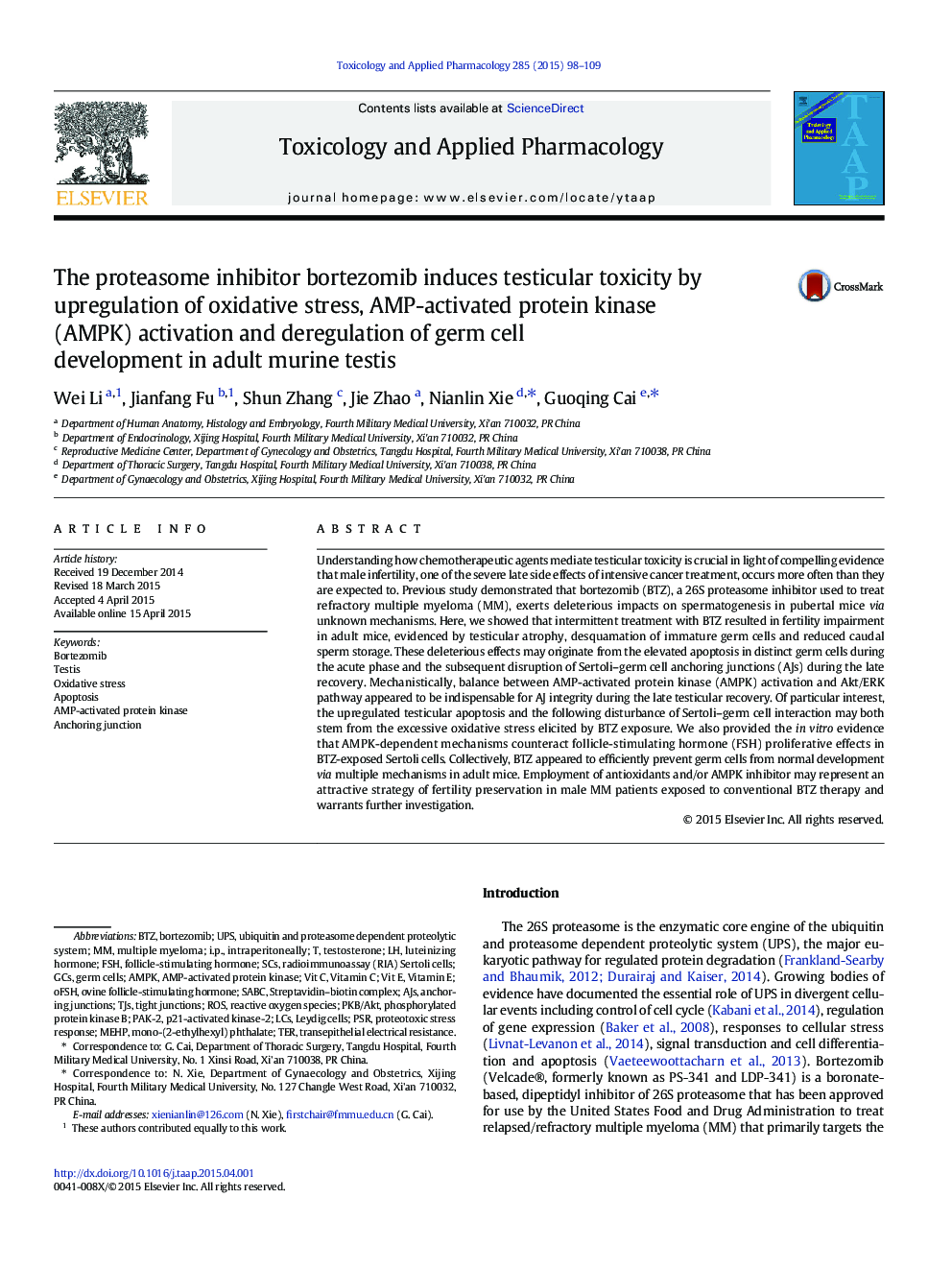| کد مقاله | کد نشریه | سال انتشار | مقاله انگلیسی | نسخه تمام متن |
|---|---|---|---|---|
| 2568436 | 1128448 | 2015 | 12 صفحه PDF | دانلود رایگان |

• Intermittent treatment with BTZ caused fertility impairment in adult mice.
• BTZ treatment elicited apoptosis during early phase of testicular recovery.
• Up-regulation of oxidative stress by BTZ treatment disrupted AJs dynamics.
• BTZ treatment stimulated AMPK activity during late phase of testicular recovery.
• AMPK-dependent mechanisms counteract FSH proliferative effects in BTZ-exposed SCs.
Understanding how chemotherapeutic agents mediate testicular toxicity is crucial in light of compelling evidence that male infertility, one of the severe late side effects of intensive cancer treatment, occurs more often than they are expected to. Previous study demonstrated that bortezomib (BTZ), a 26S proteasome inhibitor used to treat refractory multiple myeloma (MM), exerts deleterious impacts on spermatogenesis in pubertal mice via unknown mechanisms. Here, we showed that intermittent treatment with BTZ resulted in fertility impairment in adult mice, evidenced by testicular atrophy, desquamation of immature germ cells and reduced caudal sperm storage. These deleterious effects may originate from the elevated apoptosis in distinct germ cells during the acute phase and the subsequent disruption of Sertoli–germ cell anchoring junctions (AJs) during the late recovery. Mechanistically, balance between AMP-activated protein kinase (AMPK) activation and Akt/ERK pathway appeared to be indispensable for AJ integrity during the late testicular recovery. Of particular interest, the upregulated testicular apoptosis and the following disturbance of Sertoli–germ cell interaction may both stem from the excessive oxidative stress elicited by BTZ exposure. We also provided the in vitro evidence that AMPK-dependent mechanisms counteract follicle-stimulating hormone (FSH) proliferative effects in BTZ-exposed Sertoli cells. Collectively, BTZ appeared to efficiently prevent germ cells from normal development via multiple mechanisms in adult mice. Employment of antioxidants and/or AMPK inhibitor may represent an attractive strategy of fertility preservation in male MM patients exposed to conventional BTZ therapy and warrants further investigation.
Journal: Toxicology and Applied Pharmacology - Volume 285, Issue 2, 1 June 2015, Pages 98–109